Oxbow Books Ltd.
CALLING QUESTIONS INTO QUESTION?
MAY I ASK YOU SOMETHING?
This line opens many a short conversation, and it is also a fitting opening for a short book like this. The question May I ask you something? seldom prompts more than a one-word response, and theres a reason for that: Its a question that forecloses the issue at hand before even managing to raise it.
The issue at hand is whether or not we may ask a question. But in asking whether we may ask or not, weve already embarked on asking. Weve already presumed that the answer is Yes. Which is why we sometimes dont even wait for our question to be answered before moving on to our next question, our real question: Which way is Main Street? or Do you have this in size 10?
Some philosophers hold that the question May I ask you something? isnt really a question at all, since it doesnt permit multiple answers, but instead presupposes one specific, predefined answer. Some philosophers hold the opposite: that its in the nature of questions to foreclose the issues they raise. As for the rest of us, we just ask away!
We start the day by asking our loved ones whether theyve slept well. At school, the teacher asks who wants to read out loud. At work, an employee asks about a deadline. Meanwhile, a researcher writes an article answering her carefully formulated research questions, while a journalist prepares questions for an interview. In a courtroom, the accused is sentenced to prison after failing to adequately answer the prosecutors questions, while elsewhere politicians do their best to offer adequate, convincing answers to every question they get, about every topic.
 Life is full of questions. Ask a stupid question, and youll get a stupid answer. Still, if you never ask, youll never learn. Anyway: Whos asking? Maybe its just a question of time before we run out of questions? Hmm, thats a good question. Youve got to ask yourself: Its OK to ask, right? Just asking!
Life is full of questions. Ask a stupid question, and youll get a stupid answer. Still, if you never ask, youll never learn. Anyway: Whos asking? Maybe its just a question of time before we run out of questions? Hmm, thats a good question. Youve got to ask yourself: Its OK to ask, right? Just asking!
Our idioms, like our daily lives, are full of questions big and small; good and bad; easy, hard and frequently asked. Its the questions we ask, and those we fail to ask, that determine whether we gain the insight we need to do our jobs. But questions are about much more than developing or getting smarter.
It is a principle fundamental to the structure of democracy that citizens can question the decisions made by their elected officials. As individuals and communities we form our perceptions of what is right and wrong, doing so in no small part against the backdrop of question-based opinion polling, interviews and interrogation techniques.
Even so or perhaps for this very reason people rarely call questions into question.
DOING WHAT COMES NATURALLY
The way we start conversations by asking May I ask you something? is a good example of how naturally asking comes to us. Its not just the way were always asking. Its the way we do so without noticing, and apparently without being able to stop. Asking questions is as natural as breathing.
At least thats the immediate impression one gets from reading the books and articles written about questions. The German philosopher Hans-Georg Gadamer is among the few who have analysed the essence of the question, and he holds that the structure of the question is presupposed in all experience. What he means is: Even when were not asking questions, were still relating to ourselves and our environment in a questioning manner.
Consider a preverbal child who crawls over to a ball, picks it up with her hands, licks it and turns it this way and that. Gadamer would say she is asking the question, Whats this? When the same child throws the ball down and follows it with her eyes, she is exploring the question, What can a ball do? In this way all human actions can be understood as acts of questioning, and humans can be regarded as question animals.
But if Homo sapiens is the questioning animal, how do humans differ from other animals? When a curious dog sniffs your handbag, is it not questioning, just like the little child? And what about the horse pressing against its owner to reach the carrot she holds in her hand? Is it not asking Wasnt that for me?
Experts on questions would reply, No. Animals differ from human beings precisely by not asking questions. Its humans who interpret such animal behaviour as questioning, and we do so precisely because the question is an essential part of our own being not essential like breathing is to all living creatures, but essential as a way of being in the world. Asking is a way of Being: the human way of being, in philosophical terms. Its not an action that can be performed more or less explicitly by more or less conscious beings.
 The question is the essential characteristic that distinguishes human beings from animals and, for that matter, from gods. The German philosopher Martin Heidegger explains this point by saying that human beings are the only beings who call their own state of being into question. Humans consider the possibility that they could be different or cease to be at all and they do so precisely by asking. Who am I? Why am I this particular something and not something else? What does it mean to be and not to be?
The question is the essential characteristic that distinguishes human beings from animals and, for that matter, from gods. The German philosopher Martin Heidegger explains this point by saying that human beings are the only beings who call their own state of being into question. Humans consider the possibility that they could be different or cease to be at all and they do so precisely by asking. Who am I? Why am I this particular something and not something else? What does it mean to be and not to be?
Since none of these questions can be answered by anyone but ourselves, we must each ask them individually. We cannot stop. Thus, asking questions is not merely what distinguishes us from animals and gods. Questions also define us as human beings.
Questioning is a non-arbitrary condition of the human state of being, universally applicable to all people at all times. Questioning is that which cannot be otherwise, and which is therefore constant. Questioning, according to Heidegger, is the one thing we cannot call into question.
QUESTION QUEST TRUTH
Heidegger was by no means the first to give the question a central role in his understanding of what it means to be human. Nor was he the last. In Western thought and civilisation, it is an age-old assumption that  asking questions is inextricably linked to being and developing as a human being.
asking questions is inextricably linked to being and developing as a human being.
This is why questions are the staple ingredient in all teaching, coaching and therapy. It is also why scientists across disciplines agree that questions are the key to becoming smarter. Although only a handful of researchers speak and write about questions themselves, they will unanimously confirm if you ask them directly that it is impossible to develop new thoughts and ideas without asking questions. Questions are the stuff thinking and development are made of; and its thanks to questions that we have access to the good life and to true knowledge.


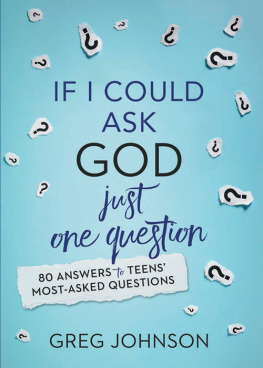
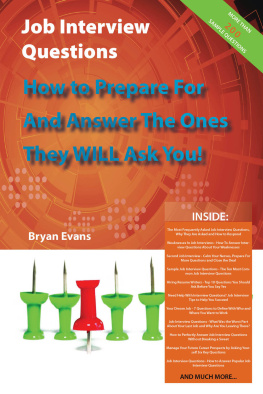

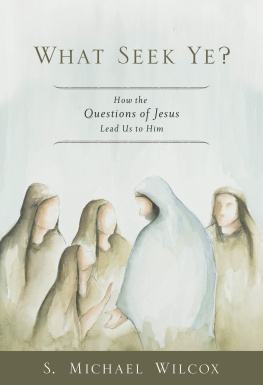


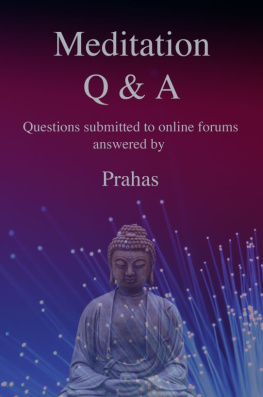

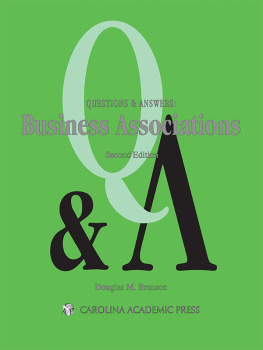





 Life is full of questions. Ask a stupid question, and youll get a stupid answer. Still, if you never ask, youll never learn. Anyway: Whos asking? Maybe its just a question of time before we run out of questions? Hmm, thats a good question. Youve got to ask yourself: Its OK to ask, right? Just asking!
Life is full of questions. Ask a stupid question, and youll get a stupid answer. Still, if you never ask, youll never learn. Anyway: Whos asking? Maybe its just a question of time before we run out of questions? Hmm, thats a good question. Youve got to ask yourself: Its OK to ask, right? Just asking!